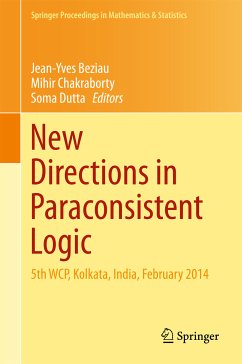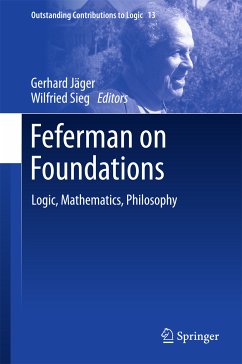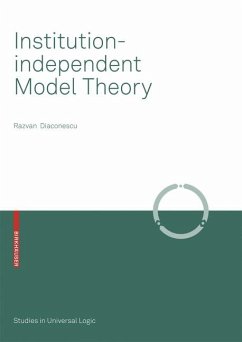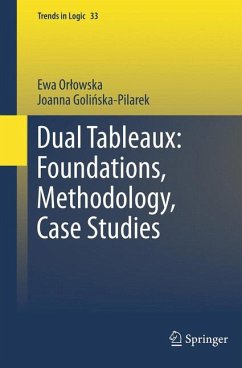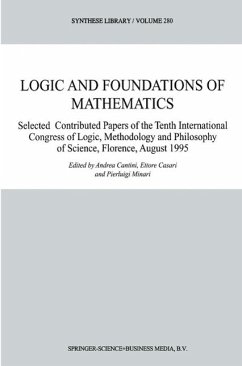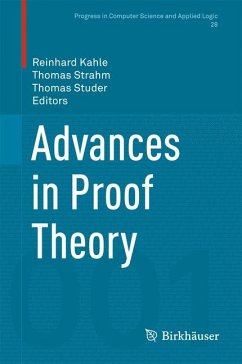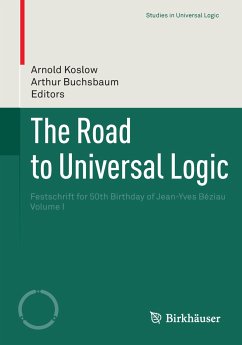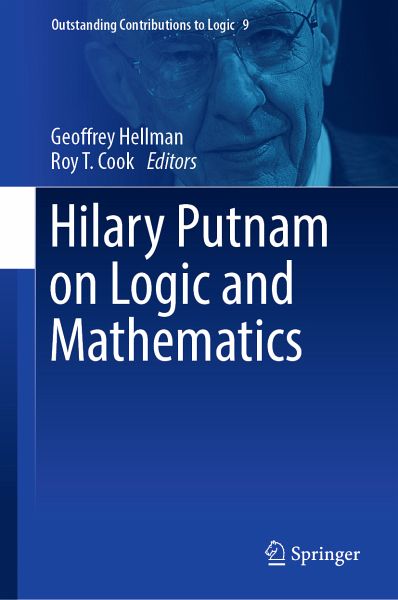
Hilary Putnam on Logic and Mathematics (eBook, PDF)

PAYBACK Punkte
48 °P sammeln!
This book explores the research of Professor Hilary Putnam, a Harvard professor as well as a leading philosopher, mathematician and computer scientist. It features the work of distinguished scholars in the field as well as a selection of young academics who have studied topics closely connected to Putnam's work.It includes 12 papers that analyze, develop, and constructively criticize this notable professor's research in mathematical logic, the philosophy of logic and the philosophy of mathematics. In addition, it features a short essay presenting reminiscences and anecdotes about Putnam from h...
This book explores the research of Professor Hilary Putnam, a Harvard professor as well as a leading philosopher, mathematician and computer scientist. It features the work of distinguished scholars in the field as well as a selection of young academics who have studied topics closely connected to Putnam's work.
It includes 12 papers that analyze, develop, and constructively criticize this notable professor's research in mathematical logic, the philosophy of logic and the philosophy of mathematics. In addition, it features a short essay presenting reminiscences and anecdotes about Putnam from his friends and colleagues, and also includes an extensive bibliography of his work in mathematics and logic.
The book offers readers a comprehensive review of outstanding contributions in logic and mathematics as well as an engaging dialogue between prominent scholars and researchers. It provides those interested in mathematical logic, the philosophy of logic, and the philosophy of mathematics unique insights into the work of Hilary Putnam.
It includes 12 papers that analyze, develop, and constructively criticize this notable professor's research in mathematical logic, the philosophy of logic and the philosophy of mathematics. In addition, it features a short essay presenting reminiscences and anecdotes about Putnam from his friends and colleagues, and also includes an extensive bibliography of his work in mathematics and logic.
The book offers readers a comprehensive review of outstanding contributions in logic and mathematics as well as an engaging dialogue between prominent scholars and researchers. It provides those interested in mathematical logic, the philosophy of logic, and the philosophy of mathematics unique insights into the work of Hilary Putnam.
Dieser Download kann aus rechtlichen Gründen nur mit Rechnungsadresse in A, B, BG, CY, CZ, D, DK, EW, E, FIN, F, GR, HR, H, IRL, I, LT, L, LR, M, NL, PL, P, R, S, SLO, SK ausgeliefert werden.



